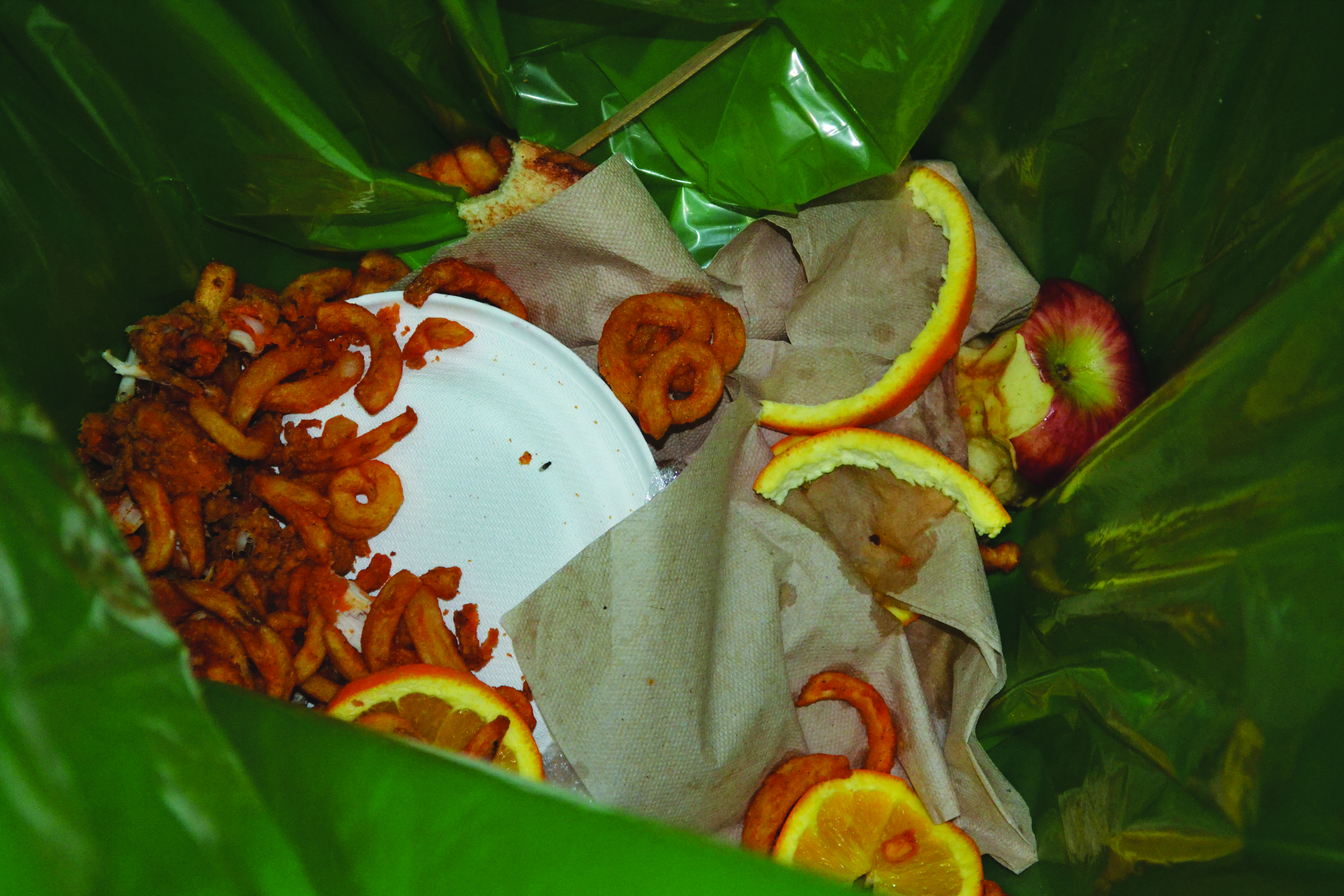By: Audrey Lane
(Guest Writer)
Despite St Lawrence’s purported dedication to environmental consciousness and sustainability, we are still, along with most universities and colleges in the United States, leaving a huge footprint on our environment. Part of this footprint is waste, specifically food waste. Huge amounts of perfectly edible and safe food are thrown out by dining and catering services. This is not a problem that is isolated to SLU, but one faced by most institutions; however, if St. Lawrence is truly committed to reducing our mark on the world, then this is an issue we should address. Food waste is an area that leaves room for great improvement. The excess of waste of safe food becomes somewhat disrespectful when one considers that we reside in the poorest county in New York State, and countless families struggle with food insecurity.
We have been recognized as a university for our environmental responsibility amongst other U.S. colleges. Princeton Review ranked St Lawrence on their Guide to 353 Green Colleges in 2015. This is an exciting distinction for the school, as it is a recognition of all our programs that aim at reaching improved sustainability. These include Campus Kitchens, the Sustainability Semester, the Adirondack Semester, the Sustainability Program, and the Seed to Table club, among others. However, despite these initiatives, there is still much work to be done to reduce our impact.
How we dispose of our food is one of those areas. After catered events, employees are instructed to throw out all uneaten food, even if it is safe or untouched. The employees are not allowed to take the uneaten food home; it must be thrown out. The U.S. Department of Agriculture estimates that 30 to 40 percent of food supply is wasted. They calculate that this translates to 133 billion pounds; the equivalent of $161 billion worth of food.
There has to be some way to use this leftover food. Either as compost or by giving it to the Campus Kitchens program. Restaurants and other institutions tend to justify this waste by citing policies restricting the resale of food. However, this justification is empty, as there is not a history of lawsuits over illnesses related to donated food. While institutions are justified in wanting to protect themselves, there needs to be some sort of balance. Even if we just allowed the employees or students to take the food home, that would save hundreds of pounds of food waste each year.
St. Lawrence needs to continue to refresh and update out environmental initiatives if we want to retain our status as being an environmentally friendly campus. We are an example of a college that is trying to do our part in this global crisis, but there is still more to be done. We are still a long way from achieving sustainability, and therefore we have to keep questioning policies and pushing ourselves to demand better for us and the environment.



